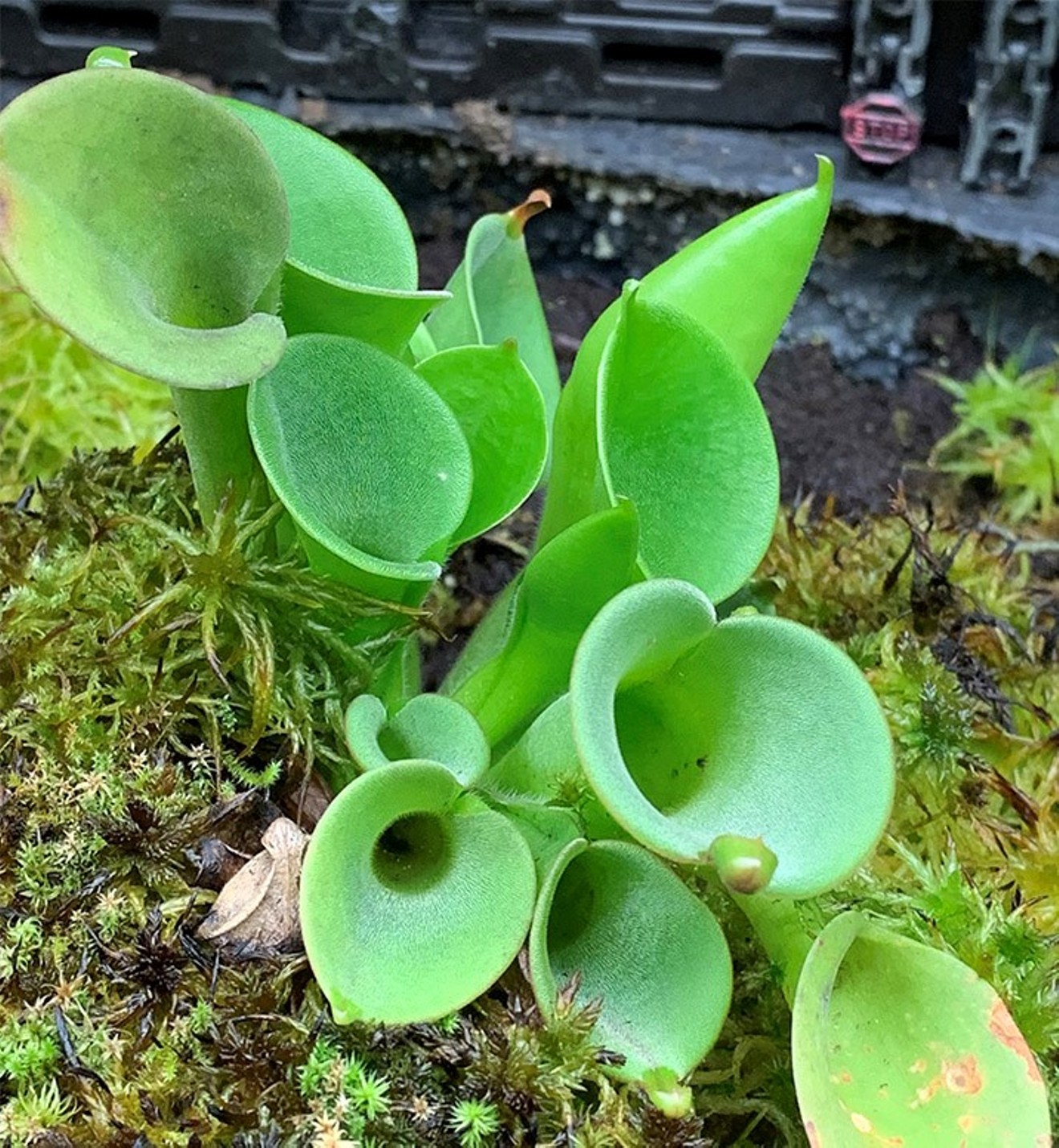One of the unique botanical attractions in Dallas-Fort Worth is gone. The Texas Triffid Ranch, "pretty much Dallas' only carnivorous plant gallery," according founder and owner Paul Riddell, closed its doors on March 9 with "no plan to revive the Texas Triffid Ranch in any capacity," according to its website.
Riddell says "a lot of factors" went into his decision to close the plant gallery.
"The biggest one is a new company bought out our property, and when the lease was up for renewal, there was a jump of nearly 40 percent in rent combined with a big increase in insurance costs," Riddell says. "I couldn't justify renewing the lease."
One of his neighbors was also driving away some of his nighttime visitors by holding raucous parties, he says.
"We had people who said they wouldn't come because they didn't want to step in puddles of urine again," Riddell says.
The Texas Triffid Ranch, named after the fictional, alien, killer plant species in John Wyndham's novel The Day of the Triffids, housed an impressive collection of carnivorous plants that Riddell says he started amassing in 2015. The ranch housed around 100 species of carnivorous plants such as Venus fly traps and various North American pitcher plants. He not only took visitors on tours of his collection but also displayed and sold plants during the Texas Frightmare Weekend convention that attracted the eye of acclaimed directors like Clive Barker and George A. Romero.
"I could have moved, but considering the volatility of commercial real estate, I didn't want to pack up and move out when the next place would get threatened with a teardown," Riddell says. "I couldn't justify moving only to have to move again when the next place is going to be torn down or sold."
Riddell says he made the hard decision to close the ranch in January and started donating or selling his plants to places he knew could take good care of them. If you didn't get a chance to visit Riddell's gallery, you'll be able to see some of his carnivorous plants at the Dallas Arboretum's children's garden. Riddell says the arboretum plans to create a mobile exhibition of its Venus fly traps sometime in the future.
"There were quite a few people who were very upset; all the people who never been there and wanted to get to it one of these days," Riddell says, referring to the announcement that he'd be closing his gallery. "The rest said they were glad they came out and saw it before."
He says he's keeping a couple of prize plants for his personal collection.
"Actually, it's really good for a multitude of reasons," Riddell says. "Last year was our most successful to date. We were finally able to make a profit. It's a combination of getting too big to be able to do this as a side venture, but I wasn't successful enough at it to make it a full-time gig."
Riddell says the next chapter of his life involves working on a new "literary project" that may or may not have anything to do with carnivorous plants. Several nurseries and galleries offer carnivorous plants and the community is still alive and well, thanks in part to Riddell's hard work and dedication.
"Now is the perfect time for me to sit down and move on to something new," he says. "This project I'm working on is shaping up to be a lot of fun, and I can refer customers to Carnivero, Plano Carnivorous Plants and Maggie's Shop of Horror. I'd much rather send them and know they'll get good service and can help those businesses."
[
{
"name": "Air - MediumRectangle - Inline Content - Mobile Display Size",
"component": "18855504",
"insertPoint": "2",
"requiredCountToDisplay": "2"
},{
"name": "Editor Picks",
"component": "17105533",
"insertPoint": "4",
"requiredCountToDisplay": "1"
},{
"name": "Inline Links",
"component": "18349797",
"insertPoint": "8th",
"startingPoint": 8,
"requiredCountToDisplay": "7",
"maxInsertions": 25
},{
"name": "Air - MediumRectangle - Combo - Inline Content",
"component": "17105532",
"insertPoint": "8th",
"startingPoint": 8,
"requiredCountToDisplay": "7",
"maxInsertions": 25
},{
"name": "Inline Links",
"component": "18349797",
"insertPoint": "8th",
"startingPoint": 12,
"requiredCountToDisplay": "11",
"maxInsertions": 25
},{
"name": "Air - Leaderboard Tower - Combo - Inline Content",
"component": "17105535",
"insertPoint": "8th",
"startingPoint": 12,
"requiredCountToDisplay": "11",
"maxInsertions": 25
}
]












